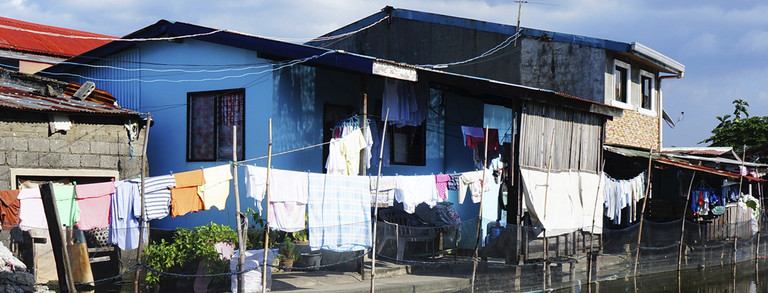WP 2: Resilient Upgrading (TU Dortmund, SURP)
A complete inventory of key actors and their institutional constellation was established and used for the workshop in February 2020. Based on the multi-dimensions of upgrading, case selection criteria concluded, the views of informal settler families (ISF) on risks, their coping capacity and their social acceptance of upgrading are pivotal. Other criteria were settlements’ existing infrastructure and their potential integration into the surrounding urban fabric, etc. It was disclosed that in-situ upgrading versus retreat has a low priority for the government and there is no holistic approach regarding sustainable livelihoods and leveraging upgrading to a city-region level. Four types of in-situ upgrading were identified:
- Housing structure improvement (using durable materials, adding second floor, etc.);
- Community infrastructure provision (basic service installation, e.g. waste collection, community hall establishment);
- Land use adjustment (via deblocking); and
- New construction on-site within the same settlement (via rollover upgrading).





